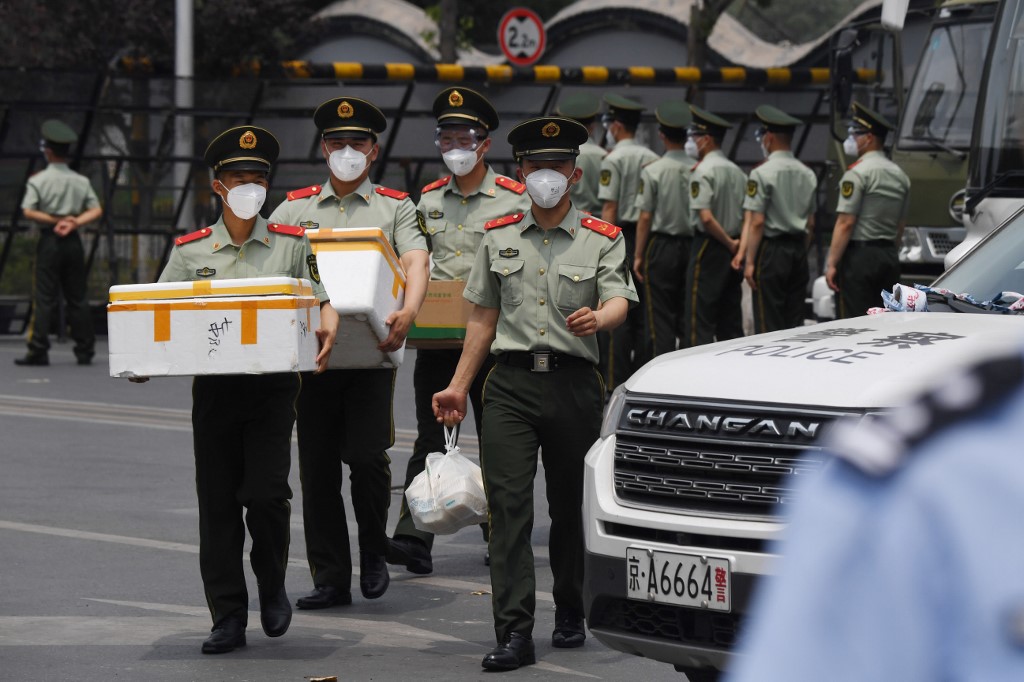(ATF) The coronavirus pandemic is far from over but financial markets are already looking at opportunities that the extreme dislocation has thrown up, notwithstanding the shrinking economies, collapsing earnings and a deflationary environment.
Investors are looking beyond the current year as stocks have clawed back most of their losses and as the bond market hunts for yields, while the piles of debt keep rising.
“In stocks, while corporate earnings this year are expected to be depressed and unpredictable, the key is to think about normalised earnings into 2021 and onward. What projected earnings are and how quickly stocks normalise their earning power will be the keys to recovery,” Rob Sharps, head of investments and Group Chief Investment Officer at T. Rowe Price, said.
Earnings forecasts for S&P500 companies for 2020 show a 23% decline on year, with the year-on-year decline for the third quarter most severe – at over 25%. But a base effect should kick in next year when 2021 earnings are expected to show a 30.7% surge.
Given the current environment though, companies are unable to provide an estimate for future earnings due to the uncertainty surrounding negative impacts from Covid-19. According to Factset, 64% of S&P500 companies said they were withdrawing or had already withdrawn previous EPS guidance for FY 2020, with nearly all explaining that uncertainty over future impacts from the pandemic were the reason for this.
“Due to their sustained outperformance over the past few years, US equities have become expensive relative to ex-US markets, in particular with regard to growth relative to value and large caps relative to small caps,” Binay Chandgothia, managing director and portfolio manager at Principal Global Investors, said.
“At this stage, we are maintaining our positive stance on outperforming asset classes, including the technology sector, while opportunistically adding those where valuations are cheap enough and underlying drivers of growth are beginning to look positive.”
But the broadening out of the equities rally is allowing regional and sector laggards to play catch-up and analysts say this could continue in the near-term given their heavily depressed relative valuations.
“In this context, our preference is for Europe. The region remains very cheap versus the US and is benefitting from increasingly proactive policy measures. It is also ‘overweight’ Financials which should benefit from steeper yield curves,” Daniel Grosvenor, equity strategist at Oxford Economics, said.
Key sectors in China
China, the world’s second largest economy, is also being eyed as it is expected to recover the fastest from the pandemic among the major economies, following its infrastructure-heavy fiscal stimulus package in May.
“What stood out most in the survey data for May was the official construction PMI, which rose to a nine-month high. The forward-looking components were particularly upbeat. New orders were the highest since 2017 and ‘business expectations’ have only been higher on two occasions since 2014,” senior China economist Julian Evans-Pritchard said. “Unlike the construction boom of the past few years, which was driven by real estate, infrastructure will play the dominant role this time.”
UBS said in a note earlier this month the increased spending on infrastructure would help generate revenue growth for the machinery equipment and select materials sectors and it favoured domestic consumption, healthcare and digital entertainment for their above-average growth prospects.
It’s not just equities. China fixed income is also seen attracting flows given its higher yields, lower volatility and the central bank’s easing monetary policy, recently boosted by a surprise drop in inflation.
HSBC’s rate strategists Andre de Silva and Pin Ru Tan are recommending buying five-year China government bonds. They said there would be rate cuts ahead after funding conditions tightened over the past month, “so much so that it is as if there has been a policy rate hike”.
Since hitting an 11-1/2 year low of 1.74% in April, China’s 5-year government bond yields have jumped to 2.5%, triggering a scramble from PBoC to inject liquidity into the system.
Credit market opportunities
It is not just rates – the recent market turbulence has also thrown up opportunities in the credit market as well.
“We believe compelling opportunities in the energy sector could emerge when investment-grade issuers get downgraded into the High Yield universe. These ‘fallen angels’ often come under pressure from forced selling by strategies that can only hold investment-grade securities,” T. Rowe’s Sharps said.
“Fallen angels” are companies that get downgraded into junk category from investment grade rating.
Moody’s said in a report earlier this month potential ‘fallen angels’ now account for around 10% of investment-grade companies, higher than the 9% reached during the commodity crisis in 2016 but below the 16% recorded in May 2009 during the global financial crisis.
Investment manager Vanguard estimates that as much as US$400 billion worth of BBB bonds could be at risk of downgrade to high-yield in the United States as a result of the pandemic, depending on the path of economic recovery. That would mean about 6.5% of the $6.1-trillion US investment-grade corporate market and nearly 14% of the $2.9-trillion BBB market.
“The forced selling that may occur as bonds migrate from one rating to another can potentially create valuations that deviate from fundamental value,” said Michael Chang, Vanguard’s senior portfolio manager for high yield. “That creates the potential for opportunity for investors who don’t necessarily have to manage toward certain rating thresholds.”
The profile of ‘fallen angels’ differs from that of traditional high-yield issuers. “They tend to be higher quality,” Mr Chang said. “In general, they tend to have greater scale, generate more cash flow, and have greater financial flexibility. They tend to be the market leaders in their industries.”
























